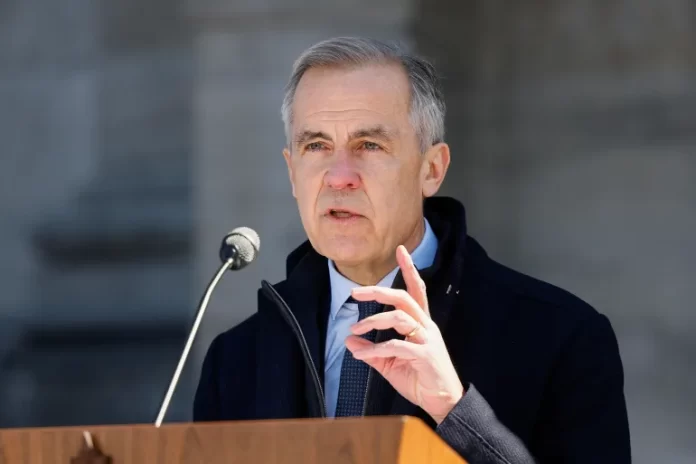Canadian Prime Minister Mark Carney has called for early elections on April 28, citing growing concerns over U.S. President Donald Trump’s aggressive stance on Canada’s sovereignty and trade.
Carney, who replaced Justin Trudeau as leader of Canada’s Liberal Party, has never faced a national election. His decision to move the vote forward from October signals his desire to counter Trump’s economic and territorial rhetoric as quickly as possible.
“I’ve just requested that the governor general dissolve parliament and call an election for April 28. She has agreed,” Carney announced in a national address.
Trump’s Impact on Canada’s Election
The election comes at a time of heightened tensions between Canada and its southern neighbor. Trump has dismissed Canada’s borders as “artificial” and has repeatedly suggested that the country should become the 51st U.S. state. His administration has also imposed steep tariffs on Canadian imports, straining economic ties.
“We are facing the most significant crisis of our lifetimes because of President Trump’s unjustified trade actions and his threats to our sovereignty,” Carney said. “He wants to break us so America can own us. We will not let that happen.”
Despite declining popularity, the Liberal Party has seen a recent surge in polls following Trump’s comments. Carney hopes to harness this wave of patriotism to secure a strong mandate.
“We need a government that will stand up for Canada,” Carney said. “Our response must be to build a strong economy and a more secure Canada.”
Opposition Reactions
Pierre Poilievre, leader of the Conservative Party and Carney’s main challenger, is seen by some as ideologically similar to Trump. However, he distanced himself from the U.S. president in a campaign speech, saying, “I want the opposite of what Donald Trump wants.” Poilievre has focused his campaign on economic policies and lowering the cost of living for Canadians.
With Canada’s population of 41 million heading to the polls in a few weeks, analysts say the election is too close to call. Felix Mathieu, a political scientist at the University of Winnipeg, described it as “an existential election, unprecedented in Canada’s history.”
Trump, meanwhile, insists he is indifferent to the election outcome. “I don’t care who wins up there,” he said. “But before I got involved, the Conservative was leading by 35 points.”
As the election campaign heats up, Canada’s political future remains uncertain, with U.S.-Canada relations taking center stage in the country’s most consequential vote in decades.
Like 👍, Comment, share this article, and Follow us on our social media handles.








